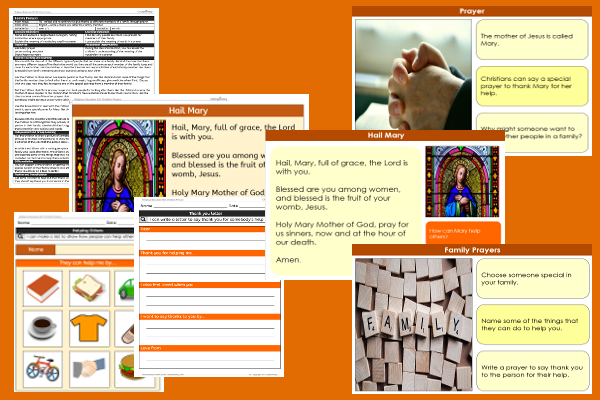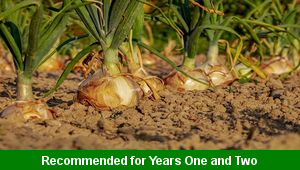Lesson Six – Family Prayers

This religious education teaching pack for Key Stage One gets the children to reflect and record how to give thanks to different members of a family by composing and reciting a prayer to God for special purposes.
The class can compose their own example prayers to suggest how someone in their family can help them in different ways and show thanks for their support.
Download this teaching pack including a lesson plan, classroom activities and an interactive presentation to reflect and record how to give thanks to different members of a family by composing and reciting a prayer to God for special purposes
Activities in this teaching pack include a shared reading text to read and explain the meaning of a Christian prayer about an important figure in Christianity, a worksheet to support ability levels to record how they can receive support from a family member at home and a template for core and extension ability levels to write a letter to thank a member of their family for support and help.
The interactive presentation can be used to explore how to give thanks to different members of a family through composing and reciting a prayer.
This lesson is part of a religious education scheme of work to get the children to investigate and record how Christians can illustrate and demonstrate their faith and beliefs through different prayers. There are teaching activities for shared learning, differentiated worksheets to support independent learning and interactive presentations to introduce concepts and key skills.
-

City Living
Identify, describe and compare some of the different physical and political geographical features of cities with other locations around the world
-

Sea Collage
Combine and shape a selection of different natural and art materials to produce artwork reflecting ideas and themes about the sea
-

Harvest
Explore and record how the autumn harvest is celebrated and marked in different communities around the world
-

Weather Database
Explore and record how to use computer databases to store, organise and interrogate data and information about what is happening in the weather
